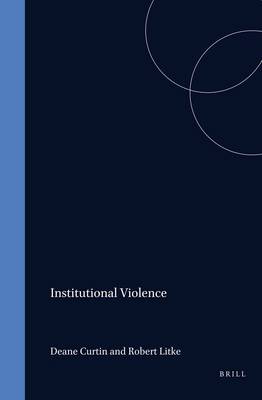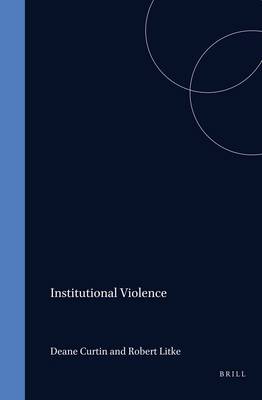
- Afhalen na 1 uur in een winkel met voorraad
- Gratis thuislevering in België vanaf € 30
- Ruim aanbod met 7 miljoen producten
- Afhalen na 1 uur in een winkel met voorraad
- Gratis thuislevering in België vanaf € 30
- Ruim aanbod met 7 miljoen producten
€ 309,95
+ 619 punten
Omschrijving
Violence can be physical and psychological. It can characterize personal actions, forms of group activity, and abiding social and political policy. This book includes all of these aspects within its focus on institutional forms of violence. Institution is also a broad category, ranging from formal arrangements such as the military, the criminal code, the death penalty and prison system, to more amorphous but systemic situations indicated by parenting, poverty, sexism, work, and racism. Violence is as complex as the human beings who resort to it; its institutional forms pervade our relational lives. We are all participants in it as victims and perpetrators. The chapters in this book were written in the hope that violence can be explicated, even if not fully understood, and that such clarification can help us in devising less violent forms of living, even if it does not lead to its total abolition. The studies bring new aspects of violence to light and offer a number of suggestions for its remedy.
Specificaties
Betrokkenen
- Auteur(s):
- Uitgeverij:
Inhoud
- Aantal bladzijden:
- 432
- Taal:
- Engels
- Reeks:
- Reeksnummer:
- nr. 88
Eigenschappen
- Productcode (EAN):
- 9789042005082
- Verschijningsdatum:
- 1/01/1999
- Uitvoering:
- Hardcover
- Formaat:
- Genaaid
- Afmetingen:
- 155 mm x 230 mm
- Gewicht:
- 902 g

Alleen bij Standaard Boekhandel
+ 619 punten op je klantenkaart van Standaard Boekhandel
Beoordelingen
We publiceren alleen reviews die voldoen aan de voorwaarden voor reviews. Bekijk onze voorwaarden voor reviews.









